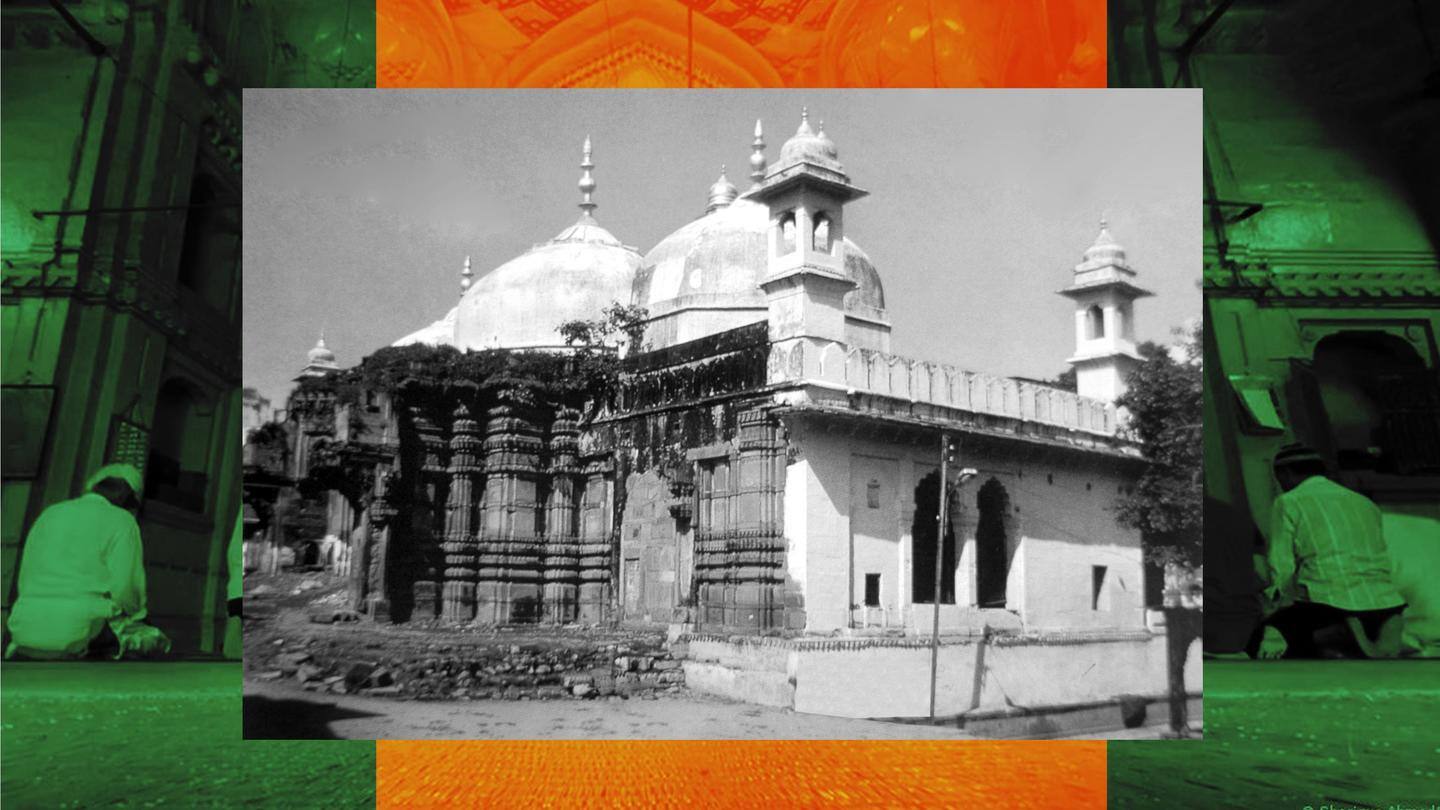
Varanasi: Court refuses to stay Gyanvapi Mosque survey, seeks report
What's the story
A court in Uttar Pradesh's Varanasi on Thursday ruled that survey inside the Gyanvapi Mosque would continue.
The court also said the survey commissioner would not be removed, and ordered that the exercise be completed by May 17.
The court further added two more advocates to the survey commission.
Notably, the mosque management had sought replacement of the current surveying official.
Context
Why does this story matter?
The Gyanvapi Mosque issue is on the lines of the Ayodhya dispute, which was resolved in 2019.
In 1991, a number of petitioners had moved the Varanasi court, contending the mosque was built by Mughal emperor Aurangzeb after demolishing a Hindu temple in 1669.
They demanded that the mosque be removed and the land be handed over to Hindus.
Details
Survey remained incomplete after protests
The court heard the petition for the survey official's replacement from Monday through Wednesday.
On their part, the mosque management accused the surveying officer, advocate commissioner Ajay Mishra, of favoring Hindu petitioners in the court-ordered survey and demanded that he be removed.
Last week, the official carried out an inconclusive survey of some parts in the complex following sloganeering from both the sides.
Response
No justification for videography: Counsel for the mosque management
"Maa Shringar Gauri Sthal and Gyanvapi Mosque are separate and in such a situation, there is no justification for videography inside the mosque," Abhay Nath Yadav, who is representing the mosque management committee, had argued in the court.
However, the court is considering the opening of the two basements located inside the Gyanvapi Mosque for videography.
Order
Survey allowed based on women's petition
On April 18, 2021, five Delhi-based women had demanded permission for year-long daily worship of of deities Shringar Gauri, Lord Ganesh, Lord Hanuman, and Nandi placed in the mosque complex.
Currently, devotees are allowed to worship at Shringar Gauri only on the fourth day of Chaitra Navratri.
Later, on April 26, 2022, the court had ordered a survey and videography by the advocate commissioner.
Controversy
Controversy began in 1991 after petitions filed against mosque
In 1991, lawyer Vijay Shankar Rastogi had filed a petition in a Varanasi court as the "next friend" of the Kashi Vishwanath Mandir's presiding deity.
Rastogi argued Maharaja Vikramaditya built a temple—2,050 years ago—on the site where the Gyanvapi Mosque stood.
Some other petitioners claimed Mughal ruler Aurangzeb built the mosque in the 17th century by removing a portion of the Kashi Vishwanath Mandir.
Argument
Mosque was built upon ruined temple: Petitioner Rastogi
Rastogi had also argued since the mosque was built on a temple ruin, the Places of Worship (Special Provisions) Act, 1991, wouldn't apply.
So, Hindus should be granted ownership of the entire parcel of land and the right to worship inside the mosque, he asserted.
However, a trial court in Varanasi ruled in 1997 that the petitioner's request was restricted by the aforementioned Act.
Information
Rastogi filed another petition in 2019
Subsequently, advocate Rastogi had filed another petition in December 2019 seeking the court's directions for an archaeological assessment of the Gyanvapi Mosque. His plea was filed a month after the Supreme Court's decision on the Ayodhya Babri Masjid-Ram Janmabhoomi issue.
Communal tension
Communal tension triggered after foundation of Kashi Vishwanath Corridor laid
In March 2019, Prime Minister Narendra Modi had laid the foundation stone for the Kashi Vishwanath Temple Corridor.
However, in October 2019, a contractor removed a chabootra near gate number 4 of the Gyanvapi Mosque as part of the temple corridor construction.
This led to communal tensions in the neighborhood, prompting the contractor to build the demolished structure overnight.